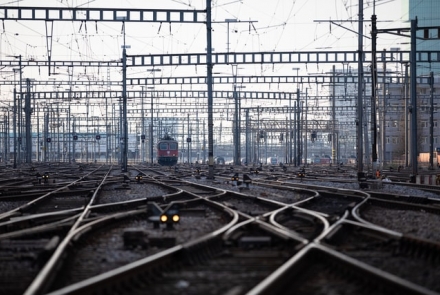
Keeping the community on board
Lessons from Australia’s unprecedented $235 billion infrastructure program can help governments to maintain the community support they need to beat COVID-19, Sara Bice and Kirsty O’Connell write.
As anyone who has experienced road delays or loud drilling can attest, infrastructure delivery can be challenging and disruptive. While a global health crisis may seem far removed from constructing a new light rail or tunnel, Australia’s infrastructure sector has a wealth of experience delivering difficult messages and working with communities during times of change. This experience can support policymakers at this difficult time.
Research from The Australian National University Institute for Infrastructure in Society demonstrates that successful community engagement supports a strong social license necessary to delivering major projects. These lessons can help governments as they attempt to keep communities on-board with a COVID-19 response that will likely last for a year or more as experts race to create a vaccine.
Prime Minister Scott Morrison recently described the COVID-19 response as a partnership between government and the Australian community, highlighting how important this is.
The Institute’s research reveals four key lessons that can help this government-community partnership to work.
First, it is worth taking the time to build consensus, and the earlier policymakers can do this, the better.
Where there is an obvious need – water resources that are about to run out, or fires threatening lives – communities tend to be good at recognising this and following directives. Such strategies clearly place community outcomes first, and these actions often require a willingness to change behaviour and accept sacrifices.
But support tends to run out when the collective benefits of an action seem outweighed by personal impact.
So far, in its COVID-19 response, Australian governments at all levels have made very clear that immediate action is required to protect the community. This position is further supported by information from overseas. There is simply no time for consultation. The government must inform and act with clear leadership and urgency to protect public health. This has been done to strong effect in this early stage of pandemic response.
But as Australia’s virus curve flattens, Governments will soon need to move to a more consultative approach. This will include consulting with various stakeholders to determine how best to relax social distancing directives. Advice will be needed about which current measures could be relaxed first, and when, where, and over what timeframes this should happen.
Such consultation needs to happen early – even before Australia has completely ‘flattened the curve’. Doing so will help to ensure that governments have a strong social license for their next steps.
Second, leaders must keep their promises and be fair.
Trust is key to sustaining a social license – that is, the implicit acceptance of a policy action.
Trust is built on listening and promise keeping, and trust between the public and decision-makers is fundamental. In infrastructure, this applies to engineers providing community members with accurate technical information and constructing safe and lasting infrastructure on time and on budget. In the current situation, public health experts must maintain the public’s trust that the strategy selected to beat COVID-19 is the best one and that the economic pain is being minimised.
Communities have limited tolerance for mistakes, but even less for broken promises. Mistakes can cause resentment, but broken promises fuel outrage. The result is often a social license eroded, and that can be very challenging to regain.
The public appeared forgiving during the early days of COVID-19 response, where workers were stuck in long Centrelink queues and the MyGov website faltered, but trust was lost when leaders were unwilling to admit those mistakes. Public reactions to misinformation initially disseminated to explain why the MyGov website crashed offer an important reminder of this.
A social license is based on trust, not perfection. Australian governments have worked successfully to secure a social license to manage COVID-19, but that will come under pressure if future mistakes are not acknowledged and addressed openly.
Third, when leaders don’t know, they must say so.
A willingness to admit mistakes is central to trust. Especially during difficult times, where good news is like hen’s teeth, it can be all too tempting to want to get in front of the public with a positive spin. Leaders may lean towards providing comfort, whether through finite timelines or exact budget figures, but honesty and humility are more important than delivering good news.
The research bears this out, and also shows that managing community expectations is fundamental to successful relationships. Right now, there appear to be high levels of community support for the approaches various governments are taking to limit the spread of COVID-19, and there is cautious optimism in the community.
A recent survey, for instance, found that economic confidence is rising, with 51 per cent of respondents stating that they expect the economy to be better in a year – up from 38 per cent only a few weeks ago.
While such findings appear positive at first glance, they are an alert to government that expectation management is needed. Particularly so, considering recent research from ANU Professor Warwick McKibbon suggesing the global costs of the coronavirus could be in the many trillions of dollars.
As the economic impact of this crisis likely worsens, governments will come under increasing pressure to ease the pain people are experiencing and to meet what may be unrealistically high expectations about how long it will take to reverse the downturn. Now may also be the time to begin gentle discussions about what the ‘new normal’ is likely to look like, post-pandemic.
It is important that governments are upfront about the level of complexity they are dealing with, how long it might realistically take to resolve and how much pain – financial and otherwise – that the community might go through in the process.
Finally, governments must know that communities are usually okay with uncertainty and risk – if it is put into context.
Communities are much more accepting of uncertainty and risk, given two conditions. The first is trust in relationships. The second is understanding risk and uncertainty.
When stakeholders are concerned or even scared, one of the most important things that can help is contextualising risk. This can be done effectively by introducing another familiar and already accepted risk as an example.
For example, recycled water can contain a small amount of the compound N-Nitrosodimethylamine (NDMA) which has been linked to cancer. This is a concern that is commonly raised by communities and other stakeholders when governments consider the possibility of augmenting drinking water supplies with recycled water.
But it is important to note that beer can also contain NDMA, in amounts similar to that found in properly recycled water. Contextualising this risk with such familiar comparisons can help the public to better understand the risks they are accepting.
There are already differences in opinion from leaders around the world about how social distancing might be relaxed. As governments work to find an acceptable process and timing for a safe end to social distancing, they will have to be very good at weighing up the trade-off risks to health, community, and economy. They must do so in coordinated ways that retain public confidence, or risk losing the support of the public right when they need it most.
Updated: 17 July 2024/Responsible Officer: Crawford Engagement/Page Contact: CAP Web Team












